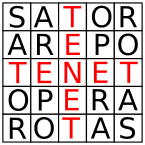... newer stories
Donnerstag, 29. März 2012
Neue Ebene genetischer Information entdeckt
klauslange,17:14h
Im Rahmen der genetischen Informationen in unseren Zellen, wurde nun eine neue Ebene entdeckt, die zeigt, dass sogenannten redundante Genabschnitte doch eine wichtige Bedeutung bei der Steuerung der Geschwindigkeit von Prozessen in der Informationsverarbeitung haben. Zur Meldung, die es übrigens in Nature geschaffte hat, hier:
By measuring the rate of protein production in bacteria, the team discovered that slight genetic alterations could have a dramatic effect. This was true even for seemingly insignificant genetic changes known as “silent mutations,” which swap out a single DNA letter without changing the ultimate gene product. To their surprise, the scientists found these changes can slow the protein production process to one-tenth of its normal speed or less.
As described today in the journal Nature, the speed change is caused by information contained in what are known as redundant codons — small pieces of DNA that form part of the genetic code. They were called “redundant” because they were previously thought to contain duplicative rather than unique instructions.
This new discovery challenges half a century of fundamental assumptions in biology. It may also help speed up the industrial production of proteins, which is crucial for making biofuels and biological drugs used to treat many common diseases, ranging from diabetes to cancer.
“The genetic code has been thought to be redundant, but redundant codons are clearly not identical,” said Jonathan Weissman, PhD, a Howard Hughes Medical Institute Investigator in the UCSF School of Medicine Department of Cellular and Molecular Pharmacology.
“We didn't understand much about the rules,” he added, but the new work suggests nature selects among redundant codons based on genetic speed as well as genetic meaning.
Similarly, a person texting a message to a friend might opt to type, “NP” instead of “No problem.” They both mean the same thing, but one is faster to thumb than the other.
Natürlich bestätigt diese Entdeckung sehr frühe Annahmen aus der Intelligent Design Theorie über den dichten Informationsgehalt in den Genen der Lebewesen. Diese weitere Informationsebene macht eine Zufallsentstehung noch unwahrscheinlicher.
By measuring the rate of protein production in bacteria, the team discovered that slight genetic alterations could have a dramatic effect. This was true even for seemingly insignificant genetic changes known as “silent mutations,” which swap out a single DNA letter without changing the ultimate gene product. To their surprise, the scientists found these changes can slow the protein production process to one-tenth of its normal speed or less.
As described today in the journal Nature, the speed change is caused by information contained in what are known as redundant codons — small pieces of DNA that form part of the genetic code. They were called “redundant” because they were previously thought to contain duplicative rather than unique instructions.
This new discovery challenges half a century of fundamental assumptions in biology. It may also help speed up the industrial production of proteins, which is crucial for making biofuels and biological drugs used to treat many common diseases, ranging from diabetes to cancer.
“The genetic code has been thought to be redundant, but redundant codons are clearly not identical,” said Jonathan Weissman, PhD, a Howard Hughes Medical Institute Investigator in the UCSF School of Medicine Department of Cellular and Molecular Pharmacology.
“We didn't understand much about the rules,” he added, but the new work suggests nature selects among redundant codons based on genetic speed as well as genetic meaning.
Similarly, a person texting a message to a friend might opt to type, “NP” instead of “No problem.” They both mean the same thing, but one is faster to thumb than the other.
Natürlich bestätigt diese Entdeckung sehr frühe Annahmen aus der Intelligent Design Theorie über den dichten Informationsgehalt in den Genen der Lebewesen. Diese weitere Informationsebene macht eine Zufallsentstehung noch unwahrscheinlicher.
... link (0 Kommentare) ... comment
... older stories

